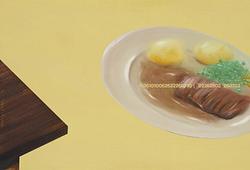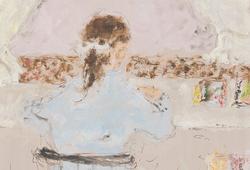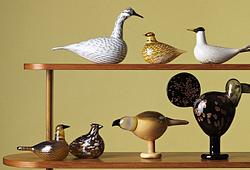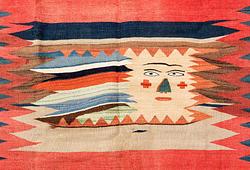Carl Milles
Dancing Maenad
Dated Stockholm 1914. Foundry mark Herman Bergman fud. The motif conceived 1913. Bronze, green patina. Length 46, height 72, width 20 cm.
Alkuperä - Provenienssi
Previously in the collections at Torup Castle, Bara Parish, Skåne. According to a note, purchased in 1920.
Kirjallisuus
'Små konstböcker No. 18. Carl Milles. 62 reproduktioner i tontryck efter fotografier af originalen', ill. full page p. 58 (under the title 'Danserska').
Henrik Cornell, 'Carl Milles, hans verk', 1963, the motif listed p. 252, compare illustration p. 40.
Millesgården Art Database, registered under no. M 79.
Muut tiedot
As a young man, Carl Milles studied ancient sculpture in museums in Paris and Munich. He retained his interest in antiquity throughout his life, and for him ancient sculpture was a constant source of knowledge and inspiration. Milles became convinced of the benefits of studying ancient sculpture in his youth when he assisted the French sculptor Auguste Rodin. Rodin was a devoted admirer and collector of both ancient and East Asian sculpture.
When Carl Milles had financial opportunities, he started collecting Greek and Roman antiquities. He started with marble sculptures. Later he also bought smaller bronzes and ceramics, coins and gold jewellery. He referred to his collection as The Greek Collection and used it in his sculpture teaching. His students, both at the Royal Academy of Fine Arts in Stockholm and at the Cranbrook Academy of Art outside Detroit, were encouraged to acquire a thorough knowledge of ancient sculpture.
In addition to Greek and Roman works, Milles also collected Egyptian, Etruscan and Chinese antiquities. All of them are now on display at Millesgården in Stockholm.
Milles played a central role in two major art events, the Baltic Exhibition in Malmö in 1914 and the Jubilee Exhibition in Gothenburg in 1923. In Malmö, separate works with dance motifs were exhibited for the first time: Dancers (mussel limestone, 1913), Two Dancers (bronze, 1914-17), and the Dancer (bronze relief, 1913), which is currently being auctioned. The dance motifs manifested a new source of inspiration, Greek Archaic sculpture, and Carl Milles displayed a new sense of form and rhythm.









































